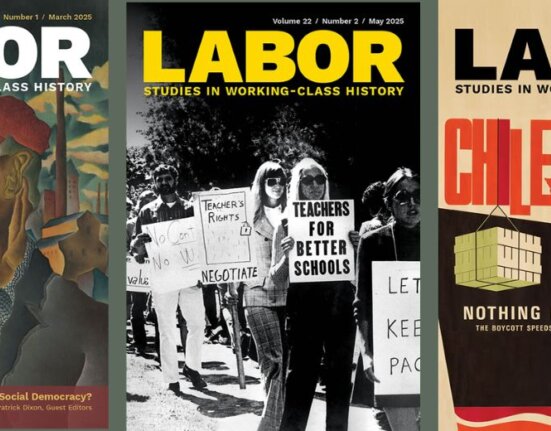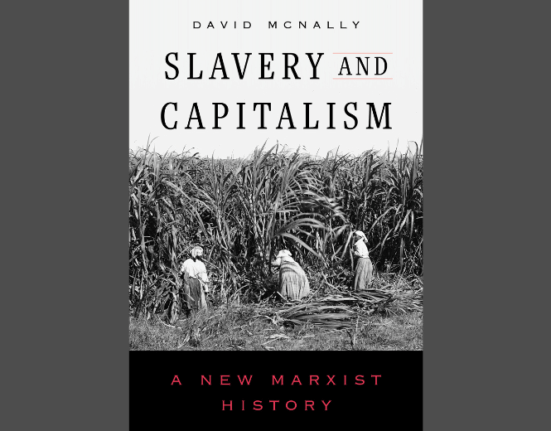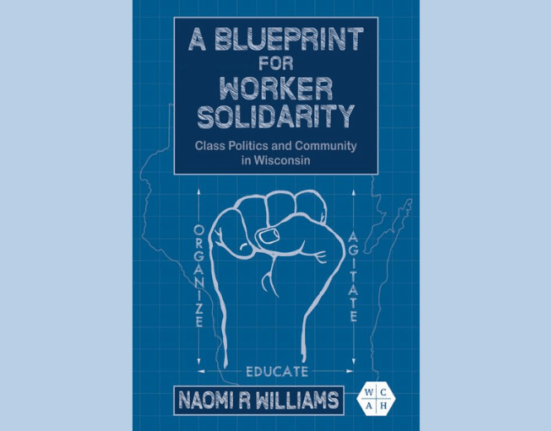Claire Raymond weighs in with a searing commentary on her experiences as an adjunct, contingent laborer in academia. This is the second blog post that introduces the important themes and issues highlighted in the new edited collection Contingent Faculty and the Remaking of Higher Education.
In the time since I wrote a Southern Labor Studies conference paper on the adjunct predicament and social dirt – the short paper that became the genesis of my chapter “Social Dirt, Liminality, and the Adjunct Predicament” in Eric Fure-Slocum and Claire Goldstene’s Contingent Faculty and the Remaking of Higher Education (University of Illinois Press 2024)– I’ve reflected on the personal experience on which that chapter is based. Before writing the chapter, I had taught for many years at a Tier 1 research university in the southeastern United States as non-tenure track faculty without expectation of continued employment. During that time, it’s no exaggeration to say that I was writing and publishing at an extraordinary pace. I was hired by that university in the southeastern United States, in 2007, as the author of one book and by the time I left, during the pandemic of 2020, I had become the author of fifteen books (I am now the author of twenty books).

That university, however, never saw me any differently than the unemployed mother with one book that I was when I entered their system, initially hired as visiting faculty on a one-year appointment. For nearly a decade and a half after that, I remained at the level of Lecturer and my pay per course stayed the same. It was like being in Kafka’s parable, Before the Law, where no matter what I did to show how exceedingly capable of research and writing I am, the university (like the gatekeeper in Kafka’s parable) continued to close the gate to stable employment.
As soon as my child graduated high school I left for a one-year research fellowship at another institution, a decision that resulted in the Tier 1 research university in the southeastern United States terminating my employment. The specter of having served for so long as non-tenure track faculty has thus far been hard to bury. A colleague at another university nominated me for a research fellowship and visiting faculty position there. She was told by the departmental committee deciding on the invitation that although my publication record is distinguished the fact that I’ve never held a tenure track position made it impossible for them to invite me to their university. I’ve had various visiting positions elsewhere and have – as always – enjoyed teaching bright students. But the eerie spectral quality of being non-tenure track remains, haunting me even as I remain a figure that haunts academia.

What fascinates me, as apparently it also fascinated Kafka, is the arbitrary and irrational quality of the gatekeeper’s subterfuges. There is never a legitimate reason to prohibit entrance. The only reason is the pleasure (on the part of the law, conveyed through the body of the gatekeeper) in turning away the petitioner. A consistent reason the tenure track/non tenure track divide persists in academia is the implicit pleasure –for administration and perhaps for many tenured faculty—of seeing the beseeching presence of non-tenure track faculty at the gate. As Toni Morrison writes (in The Bluest Eye) “All of our waste which we dumped on her and which she absorbed… All of us—all who knew her—felt so wholesome after we cleaned ourselves on her… her pain made us glow with health,” the sacrificial structure of dispossession that characterizes precariat employment gives a sense of “wholesome[ness]…health” to those who occupy the position at the gate.
I advisedly choose to quote Morrison’s description of the fate of an abused child to make the point that the specter of irredeemable social dirt that accrues around precariat faculty is a form of structural abuse. Because of precariat faculty’s unprotected job status, we are also more vulnerable to actual abuse, such as sexual harassment, within the academy, such as I experienced at the aforementioned university in the southeastern United States and did not report, too afraid to rock the boat and risk losing my tenuous job. I realize, having left that university in the southeastern United States, that I have no photographs of that campus (called the grounds). Because I was never allowed to have eyes there and claim what I saw. Yet that specific institution is only a participant in a nationwide problem. What could be done to shift this systemic abuse that now, in the third decade of the twenty-first century, characterizes academia? The idea that solidarity between tenured and non-tenure track faculty could heal the system is, I believe, too optimistic. Another example: at one of the institutions where I have taught since then I was invited to join a research group, the idea for the group being to support each other’s work as researchers in the context of a cash-strapped institution. During one of these meetings, a faculty member who was unaware that I am not tenure track spoke so belittlingly about non tenure track faculty it was breathtaking. She made it clear they are not like us. I did not point out to her that I am one of them.
But I am one of them. Them: the more than three-quarters majority of university instructors, the non-tenure track workhorses of the system. In labor history, only communal action has resulted in sustained and systemic change. What is needed, I believe, is collective action not only within institutions but also between institutions. Within institutions, unions do provide significant protections but siloed unions cannot effect system-wide change. Returning to the comparison with Kafka’s Before the Law, the arbitrary and perverse treatment of precariat faculty feels personal to each non tenure track faculty member, as if the system’s refusal of our very real need for stable employment, fair wages, and respectful treatment were a refusal composed just for each one of us. But, just as Kafka’s parable reveals, that sense of isolation before the law is the very reason for the law’s power, and it is an illusion. We are not isolated, we are not each one before the gate because of some uniquely failed quality in ourselves. Instead, we are in a system that scams us for its profit.

Non-tenure track faculty typically have PhDs, doctorates in fields with specializations that took years to achieve. The intellectual gifts of non-tenure track faculty are treated with disdain but they are real gifts. As racial capitalism deepens its hold on every aspect of existence, the double-talk that universities must cut budgets and save money while at the same time hiring more administrators at outrageously high salaries is a microcosm of the economic situation of the twenty-first century, with its soaring rift of economic disparity. The offer made to tenured faculty is to stay silent and do nothing to agitate for just, fair, and equitable treatment of non-tenure track faculty and, in staying silent, remain in the “wholesome” and “health[y]” (to quote Morrison) company of those with money and power—the administrators, the boards of trustees.
Under these conditions, academia cannot retain its position as a space set apart for clear and truthful thought. It becomes instead a space wholly purchased and controlled by corporate racial capitalism. The smearing of precariat scholars serves a social role analogous –though assuredly not identical—to the perpetuation of any other socially oppressed group. The creation of negative beliefs about this group allows academia’s social world to continue to oppress them. Precariat faculty are viewed as failed, undistinguished, with intellects unworthy of attention. That is what I meant by the term “social dirt.” A fabricated condition that dirties an oppressed group so that it can be to appear as if their oppression is justified. Unified, collective action not only within but also between institutions will have to be sustained continuously across time if we are to see real change.







